With the NFL Draft coming up, Seahawks.com is taking a position-by-position look at where things currently stand with Seattle's roster, as well as the top prospects at each position. We'll also look at Seattle's draft history at each position under general manager John Schneider and head coach Pete Carroll.
Seattle currently holds nine picks in the 2016 draft, which begins on Thursday, April 28 in Chicago.
Round 1 | Pick 26 | No. 26 overall
Round 2 | Pick 25 | No. 56 overall
Round 3 | Pick 27 | No. 90 overall
Round 3 | Pick 35 | No. 97 overall*
Round 4 | Pick 26 | No. 124 overall
Round 5 | Pick 34 | No. 171 overall*
Round 6 | Pick 40 | No. 215 overall*
Round 7 | Pick 4 | No. 225 overall (from Dallas)
Round 7 | Pick 26 | No. 247 overall
- - Compensatory Pick (compensatory picks cannot be traded)
Our draft preview series began Tuesday with the offensive line, and today we switch to the other side of the ball and focus on the defensive line.
Draft History (Under Schneider and Carroll)
DE E.J. Wilson* (No. 127 overall, 2010)
DE Dexter Davis* (No. 236, 2010)
DE Pep Levingston* (No. 205, 2011)
DE Bruce Irvin* (No. 15, 2012; Irvin later switched to LB)
DE Jaye Howard* (No. 114, 2012)
DE Greg Scruggs* (No. 232, 2012)
DT Jordan Hill (No. 87, 2013)
DT Jesse Williams* (No. 137, 2013)
DE Cassius Marsh (No. 108, 2014)
DT Jimmy Staten* (No. 172, 2014)
DE Frank Clark (No. 63, 2015)
DE Obum Gwacham* (No. 209, 2015).
- signifies a player no longer with the team
Where the Seahawks Stand
When it comes to building their defensive line, the Seahawks have had a lot of success with veteran free-agent signings. The three starters coming back from last year's team, defensive tackle Ahtyba Rubin and ends Michael Bennett and Cliff Avril, were all players who came to Seattle as free agents, which speaks both to how good the Seahawks have been at finding value at that spot, and also how difficult drafting and developing D-line talent can be—the combination of explosiveness, size, power, effort, etc. required to play and succeed as an NFL defensive linemen is very hard to find.
But just because the Seahawks have hit on some free-agent signings, that doesn't mean they're averse to drafting that position group as well. The Seahawks will expect to get contributions in 2016 from recent draft picks Jordan Hill, Cassius Marsh and Frank Clark, and it's likely they'll also look to upgrade that position group at some point in this year's draft.
With Brandon Mebane leaving in free agency, Seattle does need a new starting nose tackle, and another free-agent addition, Sealver Siliga, could be the answer there, though there will be a competition for that spot when camp begins. Bruce Irvin's departure leaves a void not just at strongside linebacker, but also at the pass-rushing role he played in nickel packages. Clark likely will see playing time in that role, as will Marsh. Another free-agent signing who could help the pass rush is a familiar face, defensive end Chris Clemons, who was a starter for the Seahawks from 2010 to 2013.
Take a look at NFL Media Analyst Mike Mayock's Top 5 interior defensive linemen in the 2016 NFL Draft.
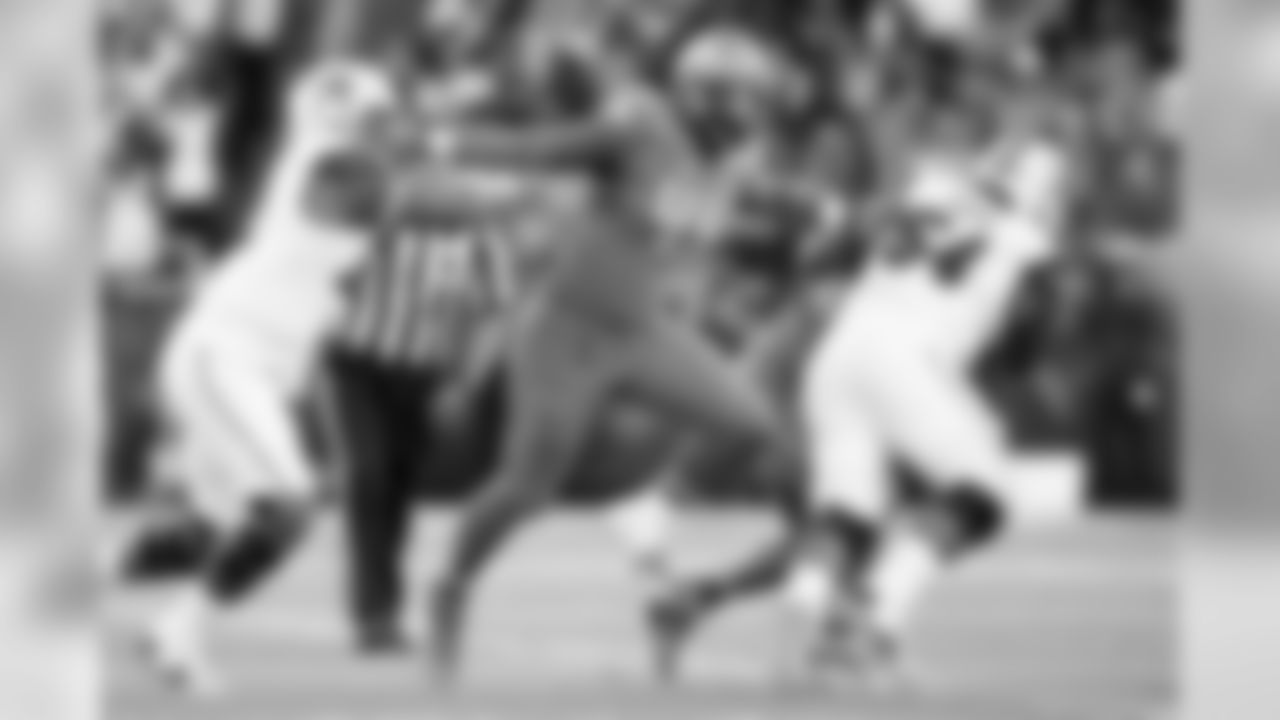
FILE - In this Sept. 26, 2015, file photo, Oregon defensive lineman DeForest Buckner (44) breaks through the Utah offensive line during the first half of an NCAA college football game, in Eugene, Ore. Buckner was named to the PAC-12 All-Conference team Thursday, Dec. 17, 2015. (AP Photo/Ryan Kang, File)
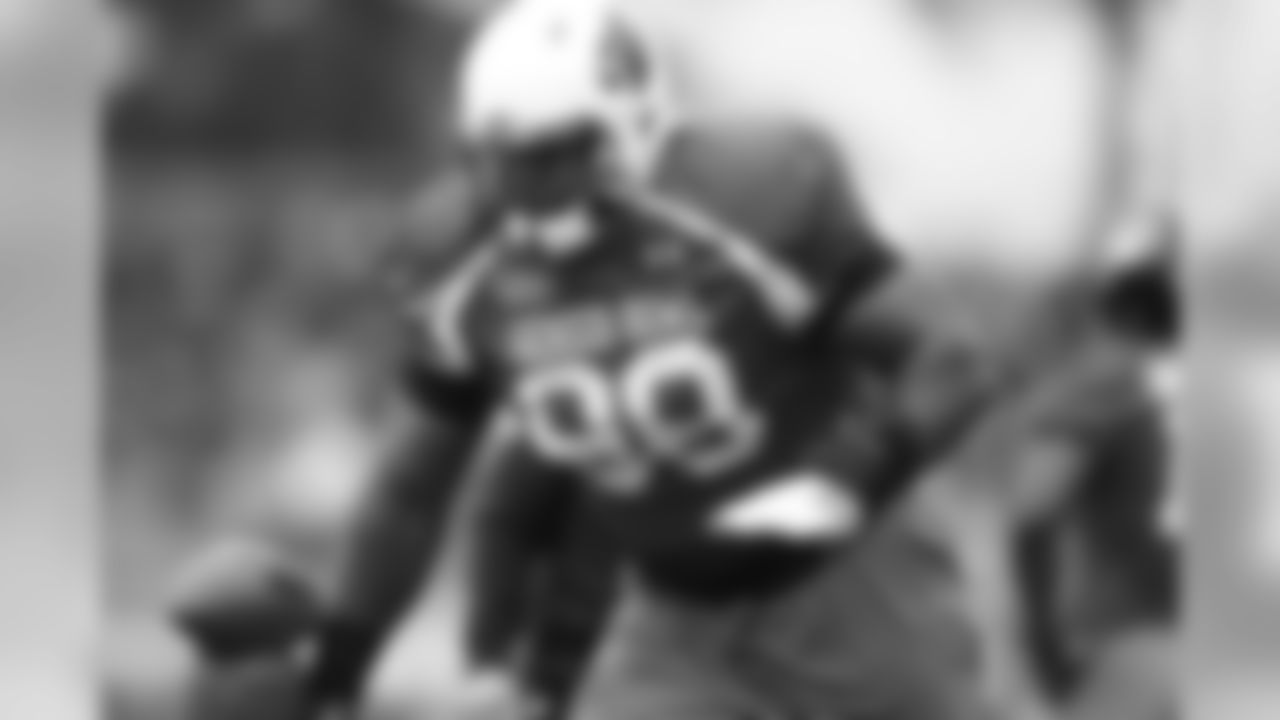
Louisville defensive end Sheldon Rankins (98) runs through drills during NCAA college football practice for the Senior Bowl, Tuesday, Jan. 26, 2016, at Fairhope Municipal Stadium, in Fairhope, Ala.(AP Photo/Brynn Anderson)
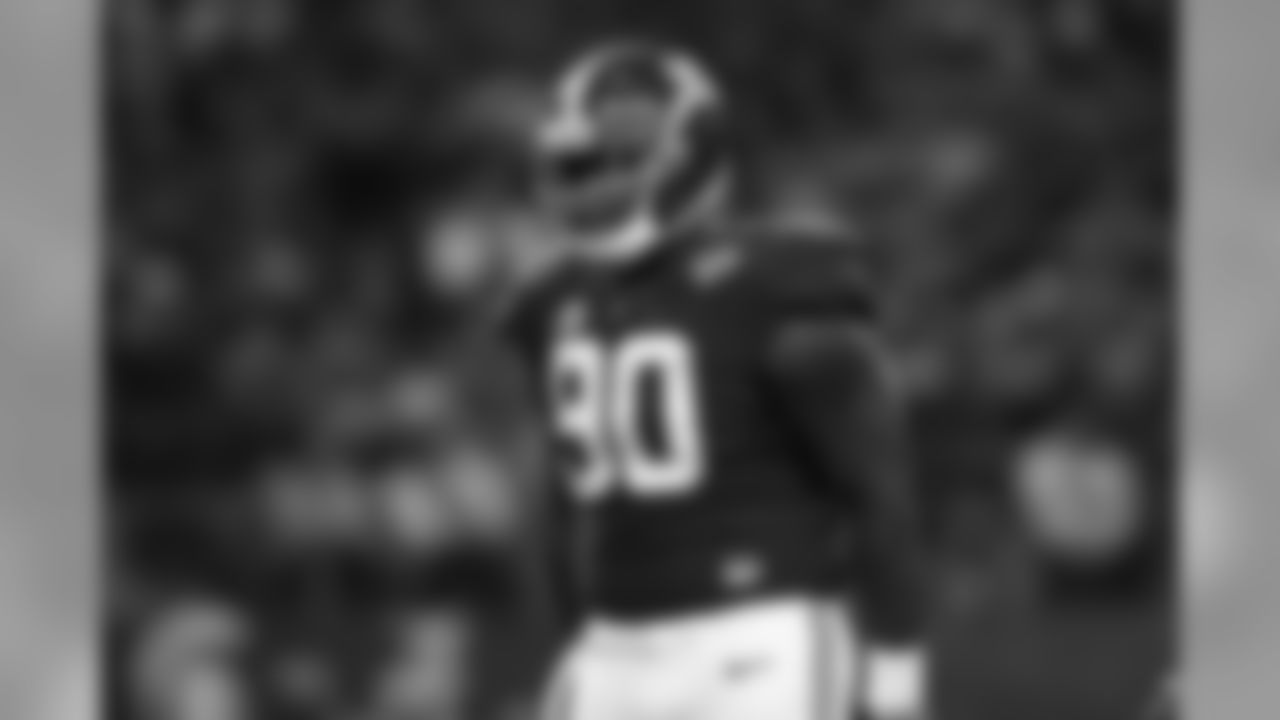
University of Alabama Crimson Tide defensive lineman Jarran Reed (90) reacts after a play during the Cotton Bowl NCAA college football playoff semifinal game against the Michigan State University Spartans on Thursday, Dec. 31, 2015, in Arlington, Texas. University of Alabama won 38-0. (Aaron M. Sprecher via AP)
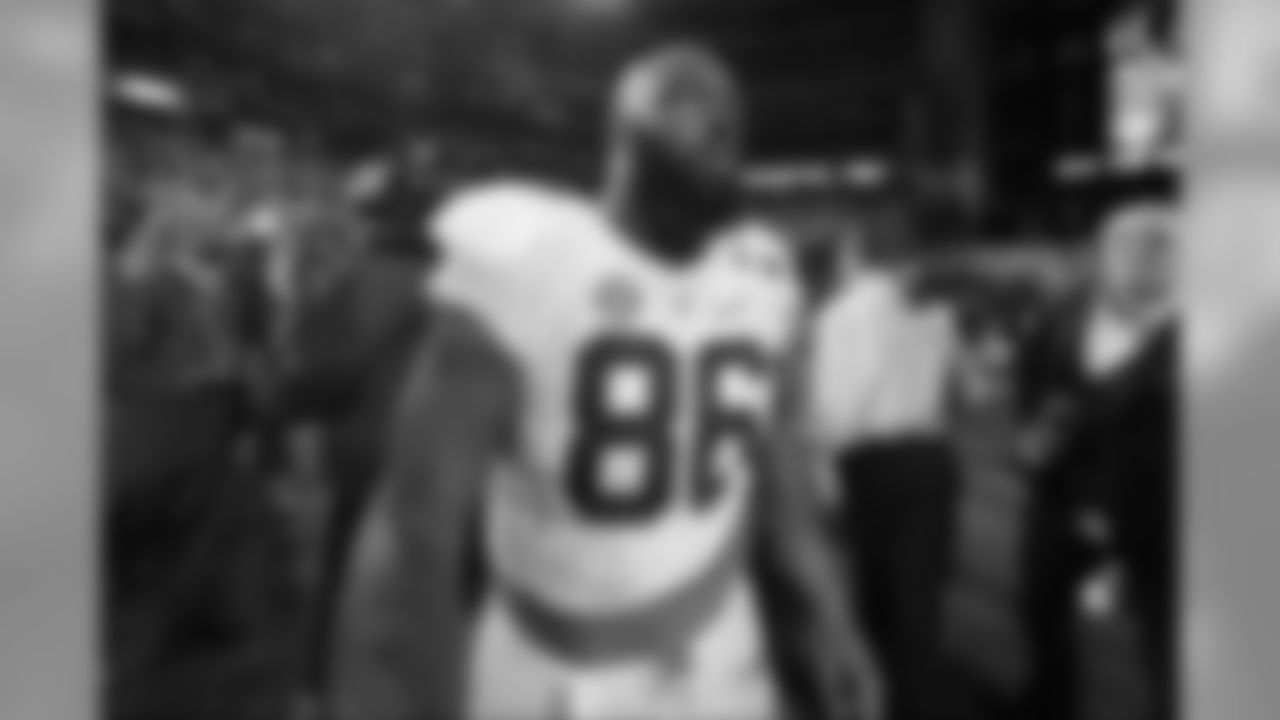
Alabama Crimson Tide defensive lineman A'Shawn Robinson (86) during the NCAA College Football Playoff National Championship game against the Clemson Tigers on Monday, Jan. 11, 2016, in Glendale, Ariz. (Ric Tapia via AP)
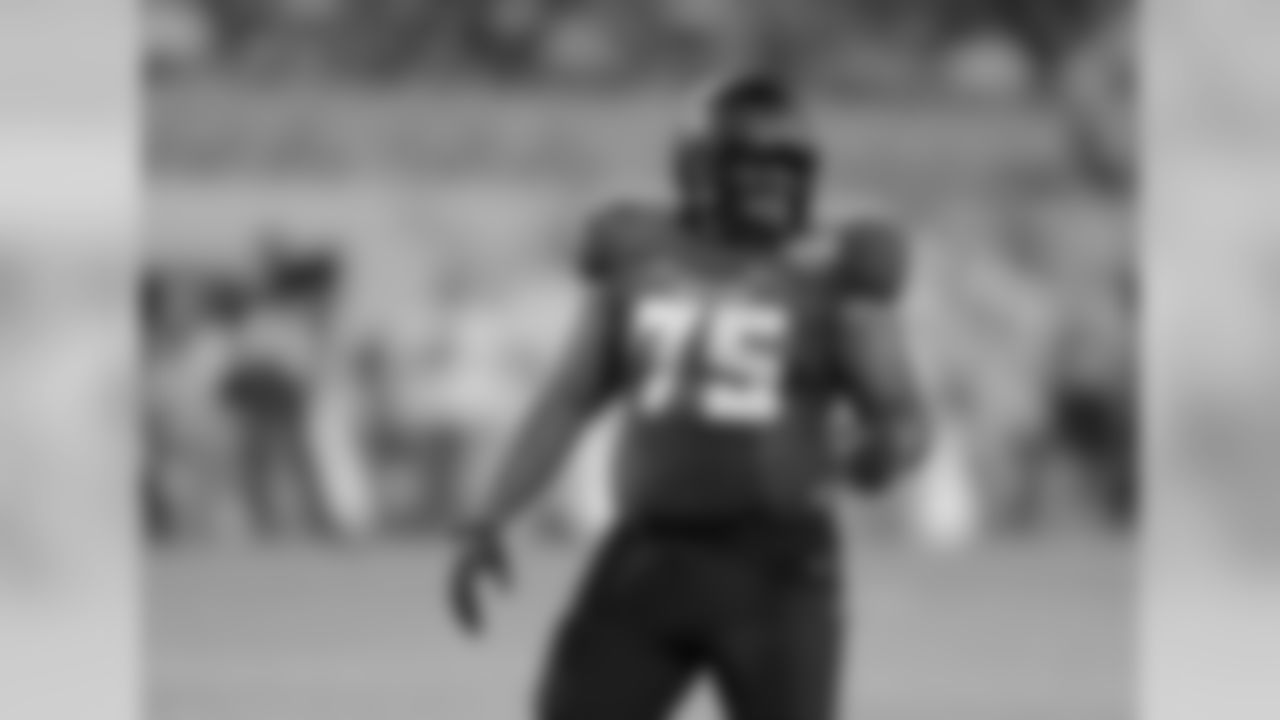
Baylor defensive tackle Andrew Billings (75) prepares for a play against North Carolina during the first half of the Russell Athletic Bowl NCAA football game, Tuesday, Dec. 29, 2015, in Orlando, Fla. (AP Photo/John Raoux)
NFL Media Draft Expert Mike Mayock's Top 5 Interior Defensive Linemen
1. DeForest Buckner, Oregon.
Bottom Line (via NFL.com): Headed into this season, Buckner was a traits prospect who flashed with quickness, strength and overall athleticism, but he put those traits together in 2015. Buckner has the body type of a classic 3-4 defensive end who can control the point of attack with length and power, but he has above average pass rush potential for that position which figures to push him into the early stages of round one. Buckner has similar power to former teammate Arik Armstead, but is a much better pass rusher and has a chance to become a dominant force in the NFL.
2. Sheldon Rankins, Louisville
Bottom Line (via NFL.com): Everything about Rankins' game screams winning football player. He has been extremely productive as a bull-rusher and edge rusher and he can hold the point of attack or play in gaps. Rankins is a ball of power with rare foot quickness, a great motor and outstanding feel for his position. With so many teams playing in sub-packages now, I would expect both 4-3 and 3-4 teams to consider him for an interior spot despite his shorter stature. Thanks to Rankins' ability to disrupt, I think he has a great shot at getting starter's snaps early on, but don't be shocked to see him fall a little in the draft due to his smaller stature.
3. Jarran Reed, Alabama
Bottom Line (via NFL.com): Reed is an elite run defender with the lower body strength to command his gap, but the instincts and timing to be productive as a tackler rather than just a space eater. Reed's lack of pass rushing ability creates a potential glass ceiling on his draft stock; however, teams looking for a battle-tested run stuffer will find an instant upgrade who should be able to come in and start immediately if needed.
4. A'Shawn Robinson, Alabama
Bottom Line (via NFL.com): Hard to find an interior lineman with a more well-proportioned frame than Robinson. His size and overall talent level will have NFL teams drooling and projecting him along any and all defensive fronts, but his film might leave them hungry for more. As opposed to teammate Jarran Reed who already plays with polish, Robinson is a projection-oriented two-gapper who can step in right away and help plug holes in a leaky run defense. If Robinson can improve his leverage issues and pass rushing, he has all-pro potential; however, he's not a sure thing to become a star.
5. Andrew Billings, Baylor
Bottom Line (via NFL.com): Billings won't turn 21 until March of 2016, but he has the overwhelming strength of a full-grown NFL defensive tackle. With elite power and unusual closing speed for a big man, Billings has a chance to become something we rarely see -- a playmaking nose tackle with the ability to dominate at the point of attack. Teams will decide through research and interviews whether Billings can handle the NFL life at such a young age, but if he can, he has all-pro potential.
Take a look at NFL Media Analyst Mike Mayock's Top 5 edge rushers in the 2016 NFL Draft.
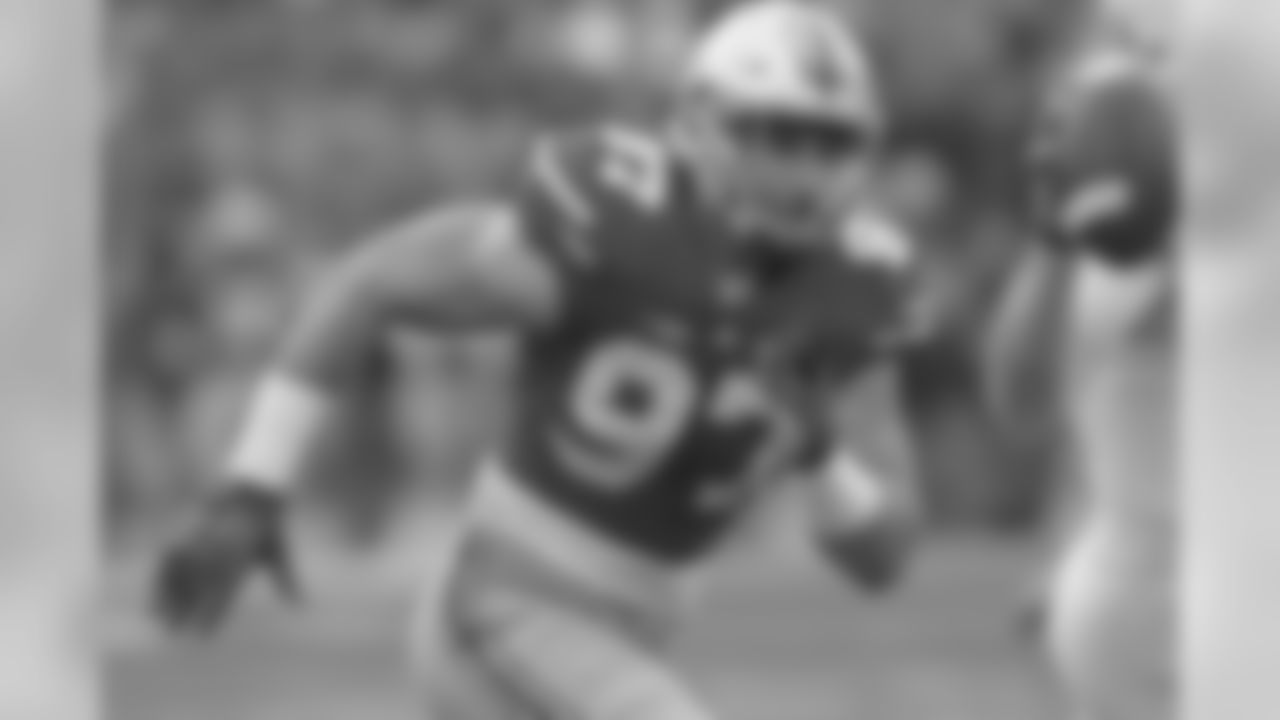
Ohio State defensive lineman Joey Bosa plays plays against Northern Illinois during an NCAA college football game Saturday, Sept. 19, 2015, in Columbus, Ohio. (AP Photo/Jay LaPrete)
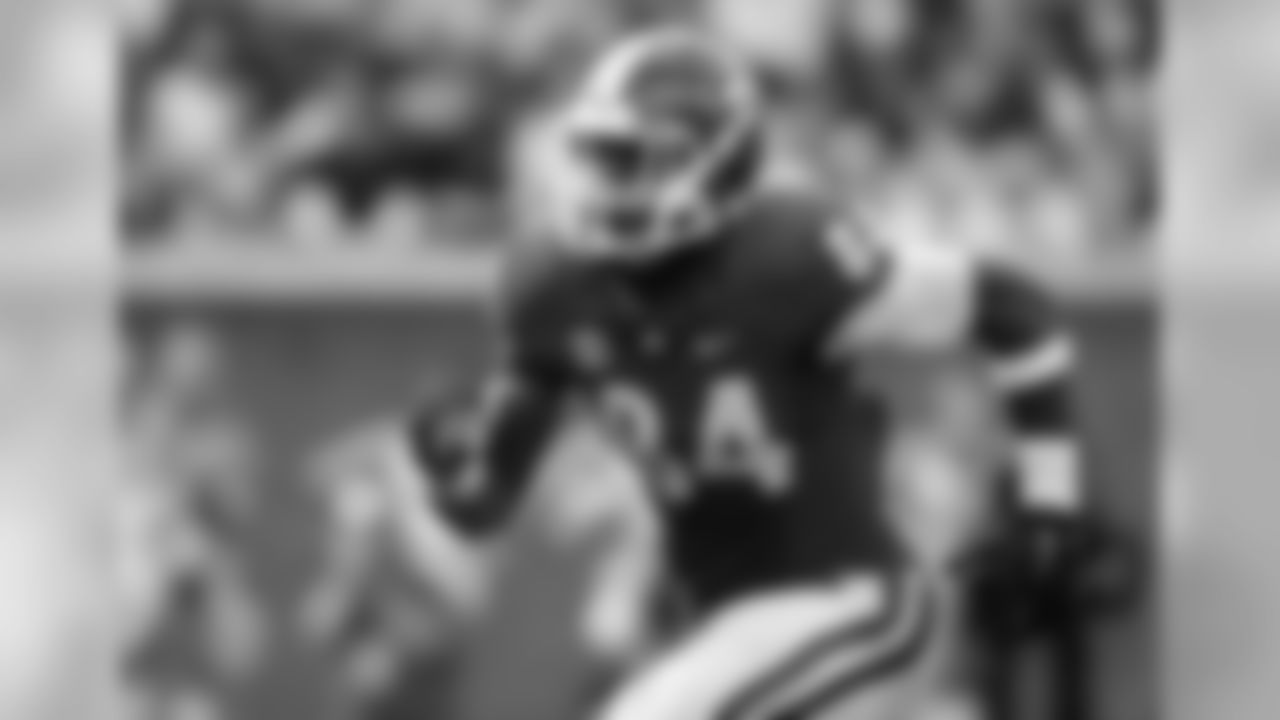
FILE - In this Xxx, file photo, Georgia linebacker Leonard Floyd (84) rushes the passer against Georgia Tech in the second half of an NCAA college football game Saturday, Nov. 28, 2015, in Atlanta. Georgia won 13-7. (AP Photo/Brett Davis)
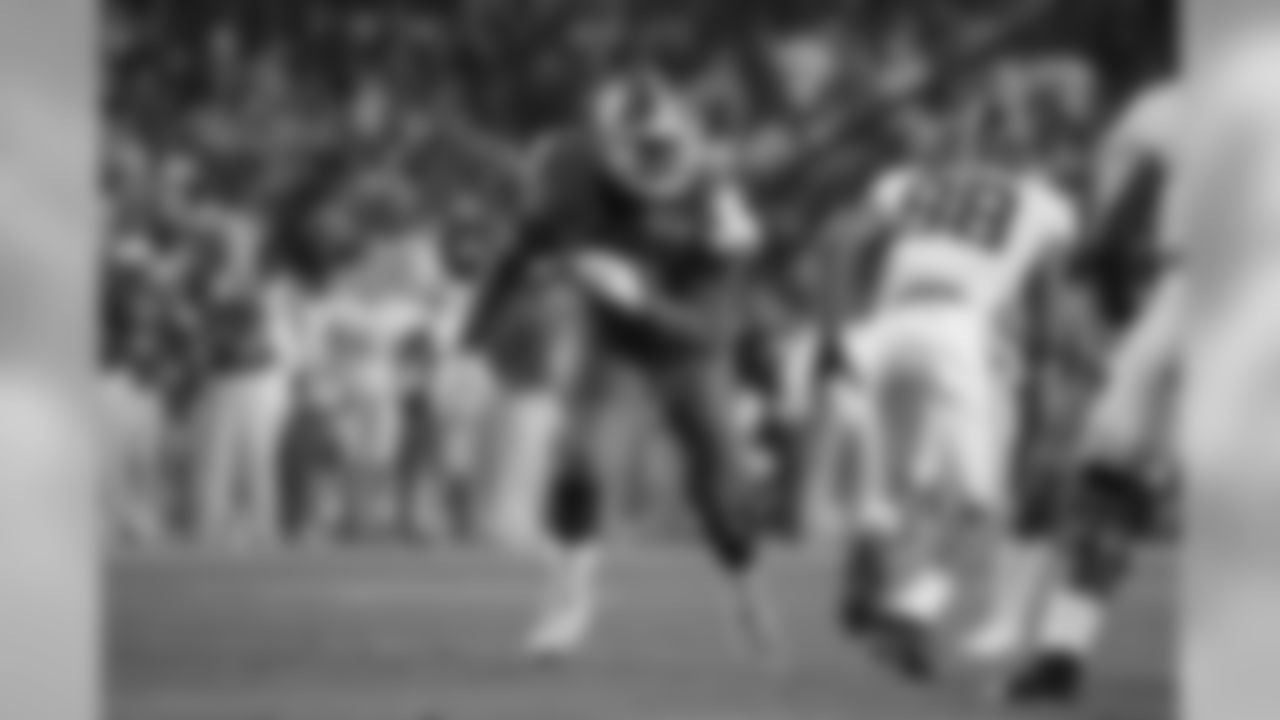
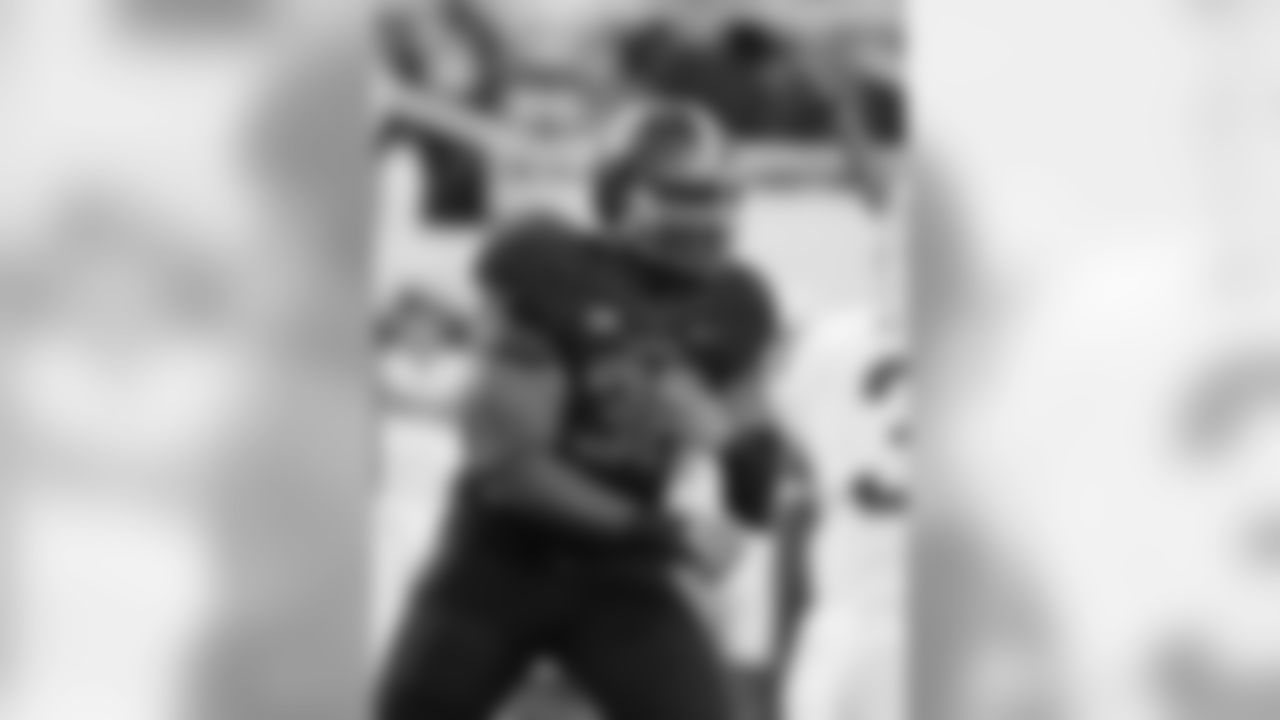
Oklahoma State defensive end Emmanuel Ogbah (38) is pictured during an NCAA college football game between TCU and Oklahoma State in Stillwater, Okla., Saturday, Nov. 7, 2015. Oklahoma State won 49-29. (AP Photo/Sue Ogrocki)
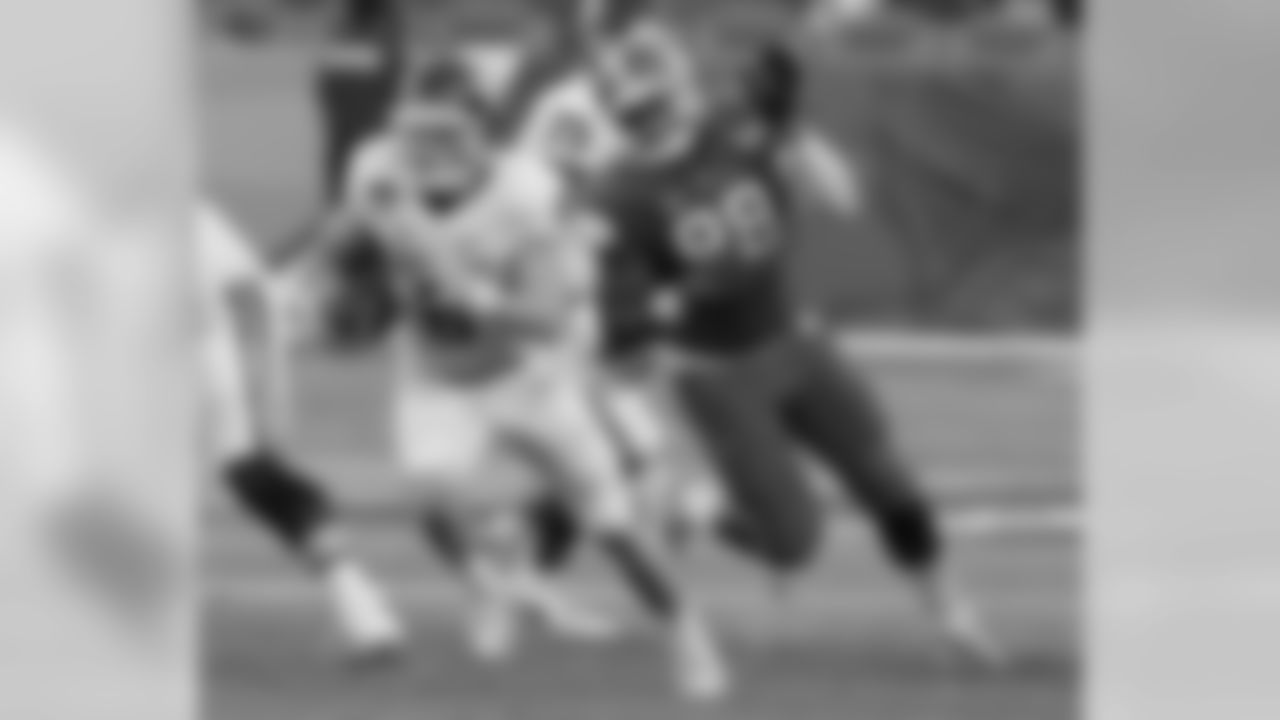
Oklahoma quarterback Baker Mayfield (6) carries the ball as Clemson defensive end Kevin Dodd (98) pursues, during the first half of the Orange Bowl NCAA college football semifinal playoff game, Thursday, Dec. 31, 2015, in Miami Gardens, Fla. (AP Photo/Joe Skipper)
NFL Media Draft Expert Mike Mayock's Top 5 Edge Rushers
1. Joey Bosa, Ohio State
Bottom Line (via NFL.com): Body beautiful college end who has the talent and upside to play with a hand down or standing in the pros. Bosa might not have the pure edge speed to be an elite pass rusher, but his hand usage and ability to generate push as a bull-rusher should make him a very good 4-3 base end or a 3-4 outside linebacker. Bosa has a few more flaws than some may be willing to admit and his upside might be good rather than great, but his traits and growth potential as a player make him a safe selection. Bosa might be at his best with a defensive coordinator willing to move him around the field.
2. Leonard Floyd, Georgia
Bottom Line (via NFL.com): Floyd is painfully thin and will struggle to matchup with the strength of NFL players, but he is rangy in space, plays with a good motor and has traits as a pass rusher that would be a mistake to ignore. Floyd's ability to cover close to five yards in three strides is rare for edge rushers. Add to that his inside counter and ability to play in space and you have a prospect who will be heavily scrutinized. Floyd's lack of functionality could limit him to sub-packages unless he proves he can add more beef to his frame.
3. Shaq Lawson, Clemson
Bottom Line (via NFL.com): Productive backup for two years before putting together an All-American season in his first year as a full- time starter. Lawson is built like a full-grown man and combines his instincts, toughness and power to fill up a stat sheet and set an early tone. Lawson's frame and game are easily translatable to the NFL, but his average athleticism and pass rush skills will likely have teams viewing him as a 3-4 edge setter or a 4-3 base end. Lawson may also have value as 3-4 defensive tackle in an upfield scheme.
4. Emmanuel Ogbah, Oklahoma State
Bottom Line (via NFL.com): Upon first glance, Ogbah appears unimpressive because he doesn't play with the quickness or athleticism expected of productive pass rushers, but eventually, his translatable qualities avail themselves. Ogbah's power will serve him well against the run, but he will have to become more skilled as a pass rusher. He can play 3-4 outside linebacker or 4-3 defensive end, and he might have value inside in subpackages.
5. Kevin Dodd, Clemson.
Bottom Line (via NFL.com): The arrow is pointed up for Dodd who finished the season with a streak of five consecutive games with a sack. Dodd already looks the part of an NFL defensive end and his desire to make plays coupled with his physical traits and talent should have him shooting up draft boards. His lack of college snaps could preclude him from being "pro ready", but his instincts and football intelligence should expedite the learning process.






